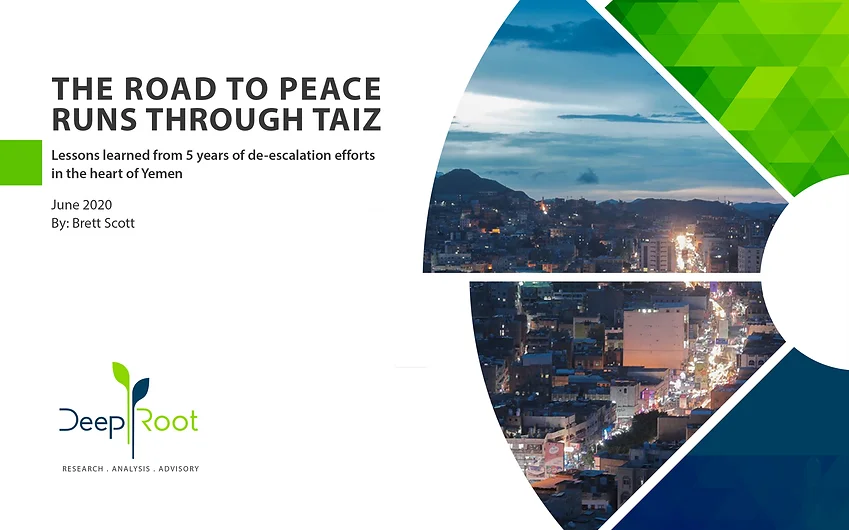Alongside UN-led efforts to achieve a political settlement to the conflict in Yemen, independent Yemeni mediators and governorate-level officials from both warring parties have launched initiatives aimed at de-escalating the hostilities in frontline areas around the country. However, despite the potential for these efforts to reduce the humanitarian burden of the conflict and bolster the national peace process, many locally-driven peacebuilding efforts have not been well documented.
This paper provides a window into the sophisticated local peace process that has been underway in the heart of Yemen, and examines the major de-escalation efforts that have been launched in Taiz governorate since 2015. Understanding these individual efforts as part of a complex, enduring process, the paper arrives at a set of lessons learned based on the cumulative experience of Yemeni mediators throughout the conflict, and corresponding recommendations on how ongoing and future efforts can most effectively be advanced.
Taiz continues to serve as an ideological center for national political parties, and as a cultural capital, link between the country’s north and south, and hub for trade and business. Against this backdrop, the paper also considers how peacebuilding efforts in Taiz can have an outsized influence on Yemen’s national stability and security, owing to the strategic significance that national and regional actors place on the governorate.
